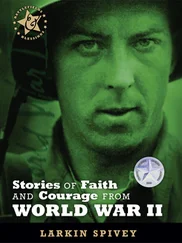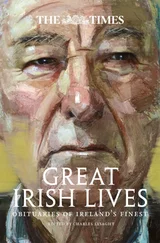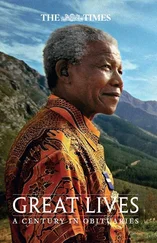Foreword by
THE TIMES
A CENTURY IN OBITUARIES
GENERAL EDITOR: IAN BRUNSKILL
EDITED BY GUY LIARDET AND MICHAEL TILLOTSON
TIMES BOOKS
Cover Page
Title Page Great Military Lives Foreword by
FOREWORD WILLIAM HAGUE
INTRODUCTION Major-General Michael Tillotson
WELLINGTON
RAGLAN
GRANT
LEE
GARIBALDI
SITTING BULL
MOLTKE
MACMAHON
CETYWAYO
TOGO
ROBERTS
HINDENBURG
LUDENDORFF
FISHER
FOCH
HAIG
JELLICOE
BEATTY
SCHEER
ATATÜRK
ALLENBY
TRENCHARD
MANNERHEIM
RUNDSTEDT
GUDERIAN
WAVELL
ALANBROOKE
AUCHINLECK
CUNNINGHAM
HORTON
DÖNITZ
ROMMEL
MONTGOMERY
EISENHOWER
PATTON
KESSELRING
MACARTHUR
NIMITZ
MANSTEIN
ROKOSSOVSKY
ZHUKOV
DOWDING
GALLAND
HARRIS
SLIM
WINGATE
RIDGWAY
GORSHKOV
WALKER
FIELDHOUSE
Copyright
About the Publisher
Politicians should always be very careful when commenting on military matters. My own hero, William Pitt the Younger, was right to say that ‘I distrust extremely any ideas of my own on military subjects’, despite the fact that he was the longest serving war leader in the modern history of Britain. Even he, a statesman who built the great international coalitions against revolutionary France, found that as a man who had never seen a battlefield, his second-guessing of generals from Downing Street could lead to disaster.
This magnificent collection of obituaries of great military leaders from The Times offers plenty of reminders of just how tense the relations between generals and political leaders can be in wartime: Lord Alanbrooke, one of Britain’s best Second World War Generals, is quoted as saying of Winston Churchill, ‘He is quite the most difficult man to work with that I have ever struck, but I would not have missed the chance of working with him for anything on earth’.
Yet some of these impressive men of war went on to become the political leaders of their nations, from the Duke of Wellington and Ulysses S Grant, through to Paul von Hindenburg – his ‘iron mask and rock-firm figure became an inalienable possession of the nation’ – and Dwight D Eisenhower. Others used the immense stature gained from victory in war to intrude into politics whenever they fancied: I much enjoyed reading of Montgomery’s ‘trenchant contributions’ to debates in the House of Lords in his old age, ‘delivered from somewhere near the exact centre of the Conservative benches but often turning his own front bench colleagues pale with apprehension.’
For all of us who love reading history, these assessments of such pivotal figures are full of fascination, covering as they do the full sweep of military history over the last two hundred years. It is impossible to read them without reflecting on the inability of most of these extraordinary people to foretell even the immediate future. Admiral of the Fleet Lord Fisher is something of an exception with his prediction in 1910 that ‘war will come in 1914 and Jellicoe will command the Grand Fleet’, but it is more telling that Hindenburg initially retired in 1911 believing that he would never have the chance to serve in wartime and MacArthur confidently informed President Truman in 1950 that the Chinese were unlikely to intervene in Korea with any force. The sharp turns taken by history are often a shock to the most brilliant of minds.
These men’s minds were, however, well attuned to combining the pursuit of an overall strategy with the rapid taking of decisions under extreme pressure: abilities which distinguish the mind suited to executive command from one better devoted to campaigning or commentating. This above all is why we politicians must treat these figures with reverence, as a reading of the pages devoted to Britain’s military leaders in the First World War shows well. For there we find Allenby winning the war against Turkey over a vast area of the Middle East with a strategy of which ‘the original conception, the patience in preparation, the rapidity and audacity in execution, prove that [he] was a true master of war’.
There too is Admiral Beatty, boldly and suddenly taking his battle-cruisers into the Heligoland Bight to achieve victory when a more cautious leader would have held back, and then his colleague Jellicoe, whose command of the Fleet gave him, according to Churchill, responsibilities on a different scale from all others: ‘the only man on either side who could lose the War in an afternoon’. It is just as well, as his obituary writer notes with approval, that his life had moulded him specifically for such duty, particularly as ‘he did not know in earlier years the softening influences of money or friends in high places’.
Obituaries are necessarily history as it was seen and understood at certain moments, and are often kinder than the subsequent judgement of later decades, but they have the advantage of dealing with the whole life of an individual whom we are used to reading about only at the peak of their career. Many of us will have read of the brilliance of Marshal Zhukov as he led the Soviet armies in the destruction of the Third Reich; we may have overlooked the fact that both Stalin and Krushchev rubbished his achievements and that he had to wait until 1965 before he could appear in public at a military parade and receive a ‘special burst of applause’.
Whether hailed or derided by their contemporaries, these are the stories of great men. Many of them, of course, would have considered themselves such at the time. When Montgomery was asked to name the three greatest generals in history, he replied ‘the other two were Alexander the Great and Napoleon’. So as we enjoy their lives afresh, with all their fascination and inspiration, we can be sure they would have wanted and expected us to do so.
INTRODUCTION Major-General Michael Tillotson
THIS COLLECTION OF great military lives spanning the decades from Waterloo to the South Atlantic campaign of 1982 reflects dramatic changes in the scale and much of the nature of war. It begins during the era when national armies or navies marched or sailed out to fight the army or navy of an adversary – in a manner advanced only in magnitude from when David challenged Goliath on behalf of his tribe – the outcome of the battle determining the politics of the matter, possibly for decades. Conflicts then expanded dimensionally, economically and socially to a point where the whole engine of the state became engaged, as with the Civil War in the United States – arguably the first modern industrial war.
Despite the speed of his defeats of Austria in 1866 and France in 1870, Field Marshal von Moltke warned Kaiser Wilhelm II in 1890 that the next war might last between seven and thirty years. He argued that the resources of modern states were so great that none would accept defeat in one campaign or major battle as fair cause for capitulation, but would fight on. He was right in the sense that the war that began in 1914 was not finally concluded until 1945. The scale of manpower involvement in land warfare increased dramatically in the years up to 1914, with the German General Staff planning to use the younger reservists – 23 to 28- year olds – to provide the strength required to envelop the French left flank under the Schlieffen Plan. Forewarned, the French looked to their younger reserves, while Britain founded the Territorial Army.
Читать дальше












